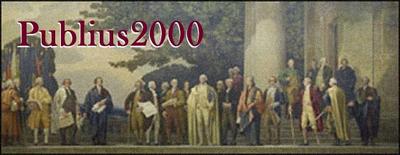Constitutional Interpretations
Over at the American Prospect’s “Tapped” blog, someone named Ulrik Jørstad Gade offers a snide commentary on Justice Scalia’s talk at AEI the other day. What bugs Gade is that Scalia would not make a choice in the false dichotomy between “strict” and “loose” interpretation of the Constitution. He quotes the justice as saying “Legal text should be interpreted neither strictly nor loosely. It should be interpreted reasonably.” For some reason Gade finds this unsatisfactory, as though it were simply a non-answer. It is in fact a capsule version of the only satisfactory answer. 185 years ago another judge put it this way:
"What do gentlemen mean by a "strict construction?" If they contend only against that enlarged construction, which would extend words beyond their natural and obvious import, we might question the application of the term, but should not controvert the principle. If they contend for that narrow construction which, in support or some theory not to be found in the Constitution, would deny to the government those powers which the words of the grant, as usually understood, import, and which are consistent with the general views and objects of the instrument; for that narrow construction which would cripple the government and render it unequal to the object for which it is declared to be instituted, and to which the powers given, as fairly understood, render it competent; then we cannot perceive the propriety of this strict construction, nor adopt it as the rule by which the Constitution is to be expounded. As men whose intentions require no concealment generally employ the words which most directly and aptly express the ideas they intend to convey, the enlightened patriots who framed our Constitution, and the people who adopted it, must be understood to have employed words in their natural sense, and to have intended what they have said."
That’s Chief Justice John Marshall (of course — by now I am a broken record citing his example). Between the Scylla of “strict” and the Charybdis of “enlarged” construction of any legal text is a proper attention to the “natural sense,” the “natural and obvious import” of the words used by the makers of the text. That is surely what Scalia meant by the “reasonable” interpretation of the Constitution. If Gade is still in the dark, that’s okay. To find the reasonable, one is expected to reason. That’s Scalia’s job. It appears not to be Gade’s.

